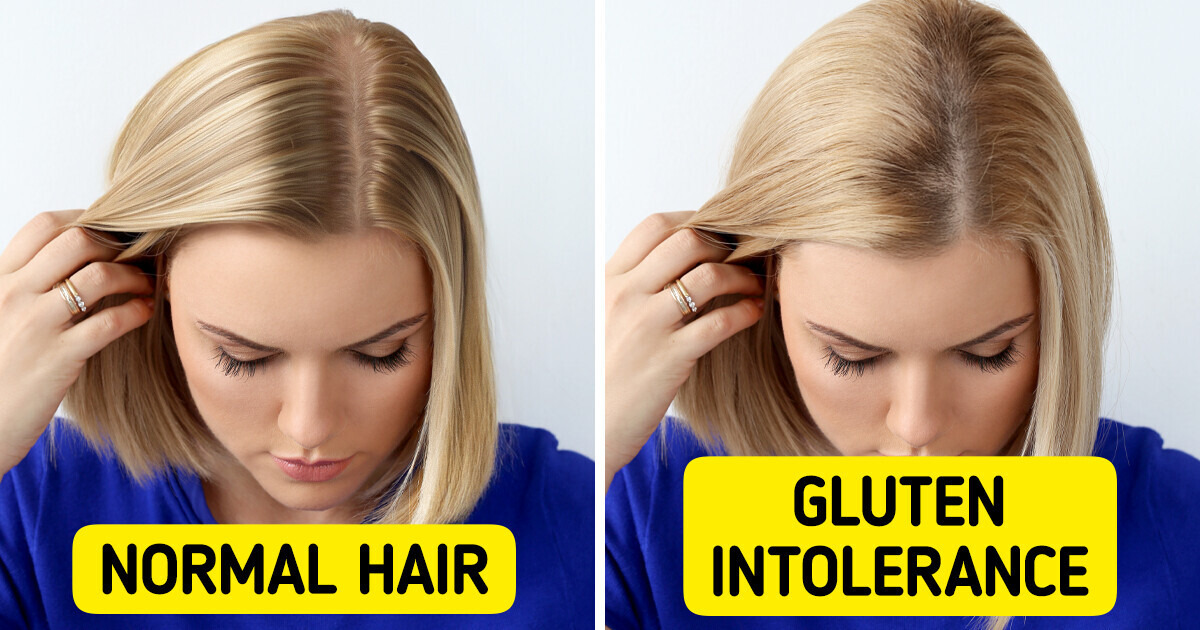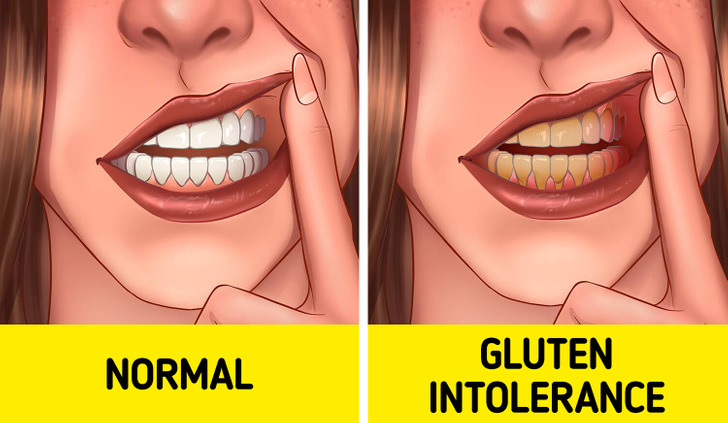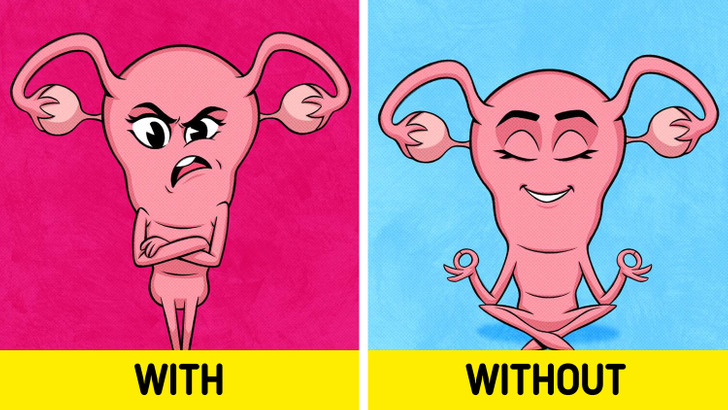My Granddaughter Kicked Me Out Because I Had No Money Left, I Taught Her a Lesson She Will Never Forget


When people think of gluten sensitivity, they often picture digestive issues like bloating or stomach pain. But gluten intolerance can manifest in unexpected, downright strange ways that go far beyond the gut. From unexplained neurological quirks to bizarre skin reactions, your body might be sending unusual warning signs that gluten isn’t your friend.
If you’ve been experiencing mysterious symptoms with no clear cause, it might be time to take a closer look at what’s on your plate. Here are 11 surprising signs that gluten sensitivity could be affecting you.
CONTENT IS PROVIDED FOR INFORMATIONAL PURPOSES ONLY AND IS NOT INTENDED AS A SUBSTITUTE OF MEDICAL ADVICE. SEEK GUIDANCE OF YOUR DOCTOR REGARDING YOUR HEALTH AND MEDICAL CONDITIONS.
A strange burning or itching sensation on your skin might seem like a reaction to heat, allergies, or even anxiety—but what if it’s linked to gluten? For some people with gluten sensitivity, unexplained rashes can be an early warning sign. It is sometimes caused by an autoimmune reaction to gluten.
When you consume gluten-containing foods, your immune system activates and produces antibodies. These antibodies then deposit in the skin, leading to itchy bumps and blisters. This burning, or even itching feeling—often described as rashes, can appear on different parts of the body.
Struggling with forgetfulness, trouble concentrating, or feeling like your brain is in a fog? These cognitive issues might not just be due to stress or lack of sleep—gluten sensitivity could be playing a role. Brain fog is a commonly reported but often overlooked symptom of gluten intolerance, where individuals experience mental sluggishness, difficulty processing information, and even short-term memory problems.
If you frequently feel mentally clouded without a clear cause, it might be worth investigating your diet. However, don’t forget to visit your doctor if you’re experiencing any symptoms.
Experiencing unexplained anxiety or mood swings? Gluten sensitivity might be a contributing factor. Beyond digestive issues, gluten intolerance can affect the brain and nervous system, leading to heightened anxiety, irritability, and emotional instability.
While research findings are mixed, several studies suggest that a gluten-free diet may help alleviate anxiety symptoms in individuals with gluten sensitivity. If you experience anxiety or other negative symptoms related to gluten, consult a healthcare provider to determine whether adopting a gluten-free diet could be beneficial for you.
If you’ve noticed an increase in sensitivity to sounds or persistent ringing in your ears, it might not just be a sign of stress or hearing loss—gluten sensitivity could be involved. Auditory symptoms like tinnitus (ringing in the ears) or heightened sensitivity to sounds are uncommon but documented signs of gluten intolerance.
Gluten may cause neurological inflammation, which can lead to these unusual auditory experiences. If these symptoms seem to appear after consuming gluten, it might be time to consider how it is affecting your body.
A metallic taste in the mouth is a strange and often overlooked symptom that can be linked to gluten sensitivity. People might experience this odd taste, even when there’s no apparent cause. This sensation can linger, making food and drink less enjoyable and often leading to confusion about its source.
While it’s not a common symptom, if you notice a persistent metallic flavor after eating gluten, it could be a sign that your body is reacting to this protein in unexpected ways. If you’re experiencing similar symptoms, try to cut back on gluten and remember to consult a doctor.
Numbness in the limbs or other parts of the body might seem like a simple circulation issue, but in some cases, it can be a sign of gluten sensitivity. For people with gluten intolerance, the body’s immune system can mistakenly attack healthy tissue, leading to inflammation that affects the nervous system.
This can cause unusual sensations like numbness, tingling, or even weakness, especially in the hands, feet, or legs. These symptoms can often be confused with other conditions, but if they seem to occur after consuming gluten, it might be worth considering the possibility of gluten sensitivity.

Having problems during nighttime is an unexpected symptom of gluten sensitivity that many people don’t associate with their diet. While sleep disturbances are commonly linked to stress, gluten intolerance can interfere with sleep patterns in more subtle ways.
These problems can range from disrupted sleep to insomnia, leaving you feeling uneasy even after waking up. If you notice that you are having troubles sleeping, it might be a sign that your body is reacting to gluten.

Sinus issues, such as frequent congestion, sinus infections, or post-nasal drip, may seem like typical seasonal allergies or a cold that won’t go away. However, in some cases, they can be linked to gluten sensitivity.
When gluten is consumed, the body releases histamine, leading to inflammation and swelling of the sinuses, which can cause a stuffy or runny nose. If you’re having similar problems, remember to book an appointment with your doctor.
While not as widely recognized as other symptoms, hair loss can be linked to gluten sensitivity. In people with gluten intolerance, it is often caused by vitamin deficiencies and malnutrition. In people with celiac disease, consuming gluten triggers an immune response that harms the intestinal lining.
This happens because consuming gluten can damage the intestinal lining, impairing the body’s ability to absorb essential nutrients over time. As a result, weakened hair follicles may lead to hair thinning or loss.

Gluten intolerance can disrupt the body’s ability to absorb essential nutrients and minerals, including calcium, which plays a crucial role in oral health. As a result, individuals may experience issues like tooth decay, increased enamel sensitivity, cavities, and discoloration on the teeth.
If these dental concerns persist despite proper oral care, gluten consumption might be a contributing factor, suggesting the need to assess dietary choices and possible gluten sensitivity.

Gluten sensitivity can have unexpected effects on fertility, particularly in those with underlying gluten-related issues. When the body reacts negatively to gluten, it can trigger chronic inflammation and nutrient malabsorption, both of which are crucial for reproductive health. Deficiencies in key nutrients may disrupt hormone balance and menstrual cycles, making conception more difficult.
In some cases, gluten sensitivity has also been linked to unexplained infertility. For those struggling with fertility issues, exploring a potential gluten connection could be an important step toward improving reproductive health. Keep in mind that for those without celiac disease or a wheat allergy, eliminating gluten without medical guidance may not be necessary or beneficial.
If you’re experiencing symptoms related to gluten sensitivity, it’s important to listen to your body. While adjusting your diet and lifestyle can help manage symptoms, persistent issues may indicate an underlying intolerance that requires professional attention. Don’t hesitate to seek medical advice—getting the right support can significantly improve your well-being.
9 Signs You’re Gluten Sensitive, and This Is Important to Know











